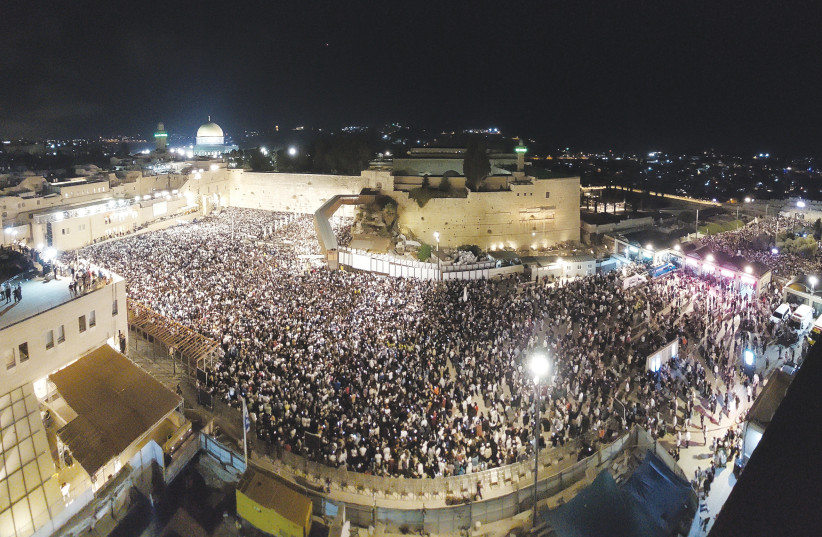Herzog on Yom Kippur: Being open to change
The Yom Kippur War was a watershed event in Israel’s history. A moment of profound national shock and trauma, it has left deep scars that, 50 years later, continue to punctuate the landscape of our society.
When the war broke out, I was a boy about to celebrate my bar mitzvah. In our small and tight-knit Tel Aviv neighborhood of mostly military families, the loss was everywhere. My own brother, Mike, returned from the battlefield – silent, withdrawn, mourning. “War is a terrible thing,” was all he would say.
It was he and every other Israeli, who showed up to fight with everything they had – those who emerged, broken in body and spirit, and those who never came back – who saved Israel from destruction.
Ultimately, we won. But the glaring failures of leadership that led to the Yom Kippur War – the arrogance, the obtuseness – but also the astonishing heroism that ultimately led to victory, have stayed with me ever since.
But they have stayed with us on a national level, as well. They underscored a basic truth: To survive, Israel must always be prepared to defend itself. But they underlined another, complementary truth: We must be equally vigilant in seeking opportunities to change things for the better.

Long impact of the Yom Kippur War
In his well-known book War of Atonement, my father, Israel’s 6th president, Chaim Herzog z”l, detailed the ways that the “like dreamers” intoxication that had taken hold in Israeli society obscured the many weak links within the IDF, and specifically the inaccuracy of Israeli intelligence in estimating Arab intentions on the eve of the war.
More recent work, including Martin Indyk’s book Master of the Game, has made a compelling case for the fact that not only did Israel’s leadership fail to gauge the intentions of the invading armies, they also failed to register Egyptian president Anwar Sadat’s signals toward peace in the years leading up to the war. It is a chilling thought exercise indeed to imagine how things could have played out very differently.
Of course, the groundbreaking Camp David Accords later signed with Egypt and, more recently, the historic Abraham Accords, have offered further tangible evidence of how radical – and beneficial – change can be, regardless of how daunting the starting point.
In this pressing hour of internal crisis within Israel, we all share a responsibility to apply these lessons forward. To remain poised to protect ourselves against external threats, but also genuinely open to the possibility of changing things for the better.
And, above all, to insist on finding the bridges back to understanding and fundamental commitment to one another, which remains our greatest source of strength.
The writer is president of Israel.





Comments are closed.